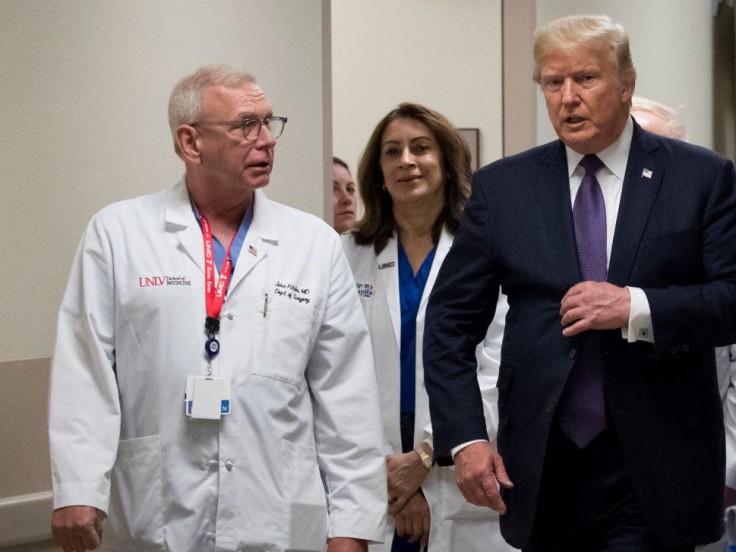Trump Supports Large Group of Doctors Calling to Lower Prices on Prescription Drugs
By
A large group of doctors in the U.S. is calling for better health care regulations and is pushing to counter high costs of prescription drugs.
The American College of Physicians published a new paper making several recommendations to improve transparency around Pharmacy Benefit Managers or PBMs. The aim is to provide patients and physicians with up-to-date and reliable information on the price of medicines.
PBMs play a major role in health care behind the scenes, but their role has increased over the years. Insurers hire them to get drug manufacturers to lower prices and to reimburse pharmacies for drugs sold.
The PBMs describe themselves as 'advocates' working to reduce drug costs, but they are characterized by opponents as 'intermediaries' or 'middlemen' who steal revenue from drug manufacturers, insurance plans, pharmacists, and patients.
According to Tom D'Angelo, the president-elect of the New York State Pharmacists Association and a pharmacy operator, PBM contracts are kept confidential and had never been revealed to anyone. D'Angelo added that he likes to describe them as 'parasites on the health system'.
This means one rate can be set by the PBMs to charge insurers and another price to pay pharmacies, netting the difference as profit, which is an income for them. And when they negotiate drug makers' rebates for insurers, they may take some of that cash, rather than passing on the savings to their benefit.
The ACP said in its new paper that the government needs to look at the roles that PBMs are playing in the industry more closely. The group calls for a ban on "gag clauses" that prohibit retailers from sharing price information with consumers and conditions for new health plans.
PBMs and pharmaceutical distributors will also be required to report to the Department of Health and Human Services the amount paid for medications, the amount of rebates and other cost information in order for the Feds to make the specifics available to the public.
Robert McLean, the ACP's president, said that the US spends more for prescription medicines than any other developed country, which is placing patients under great financial pressure. "As physicians, we have a responsibility to address issues that create obstacles to care for our patients, including skyrocketing prescription drug costs," he said.
When explaining his goal of reducing drug prices, President Trump said last year that he was planning to 'eliminate the middlemen' and openly discussed about PBMs. "Whoever those middlemen were... they're rich. They won't be so rich anymore," Trump exclaimed.
Trump announced plans on Friday to introduce rules that would allow hospitals to make prices available online to the public and require insurance companies to provide cost estimates in advance of coverage.
But the government has so far failed to take concrete action on PBMs. While the Trump administration introduced a regulation to remove rebates paid to PBMs by drug manufacturers, officials said they scrapped the plan in July.
The ACP also said that it supports new PBM controls and competition in the healthcare sector. Together, the top three PBMs command 76% of the market. Although federal-level attempts to control PBMs were slow to begin with, some states have already introduced their own legislation to lower prices.
© 2025 University Herald, All rights reserved. Do not reproduce without permission.








